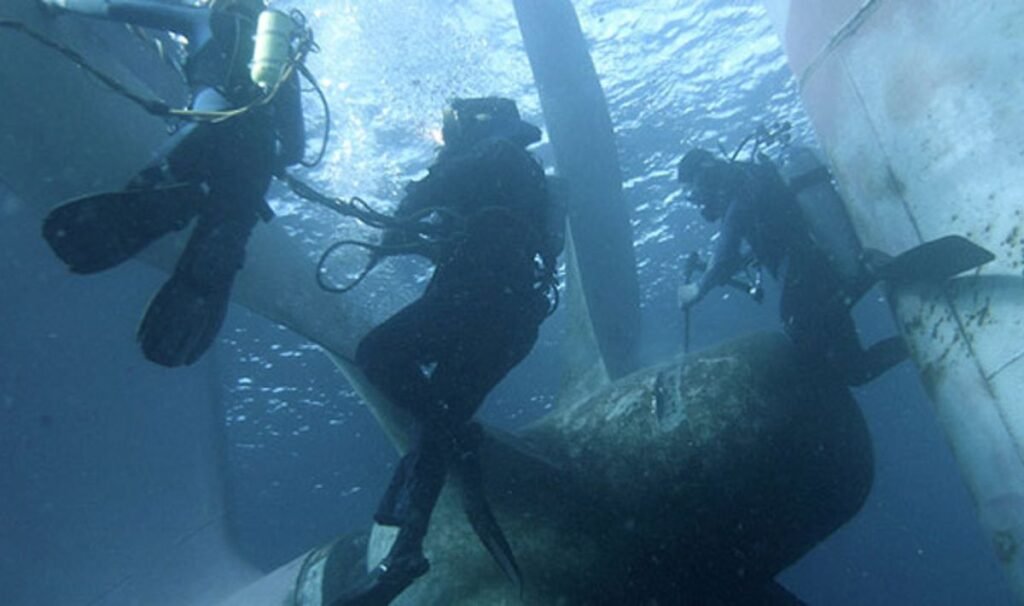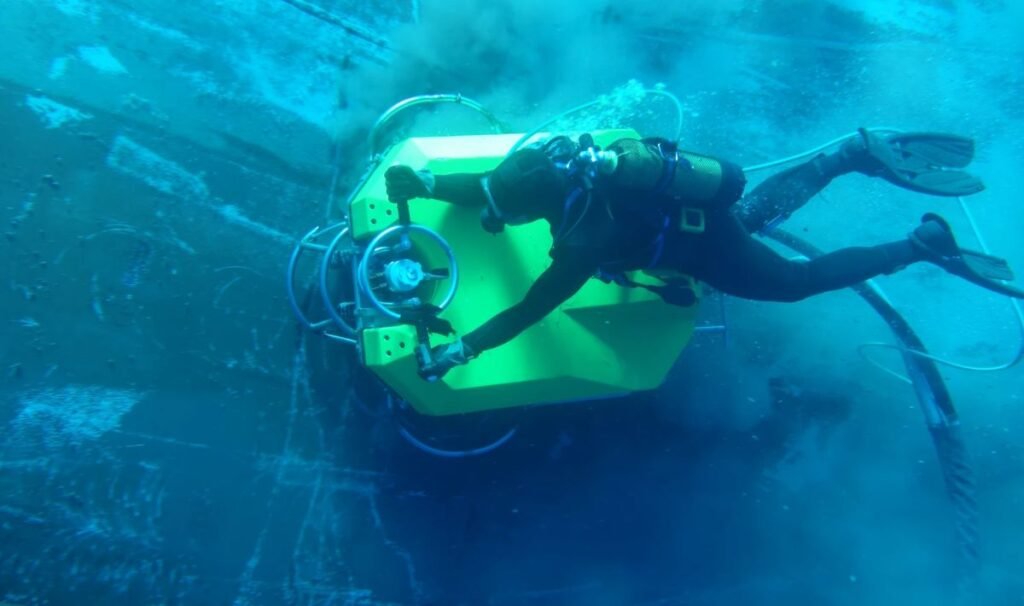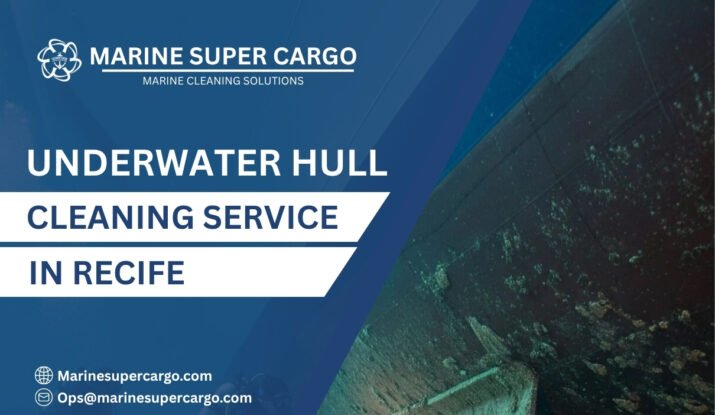Underwater Hull Cleaning in Recife: A Complete Guide
Imagine your vessel gliding effortlessly through the vibrant blue waters off Recife’s coast. No wheezing engines. No sluggish response. Just pure, unburdened movement. Sounds dreamy, right? The secret behind such a sleek performance is simpler than you think—underwater hull cleaning in Recife. Let’s dive into everything you need to know, whether you’re a ship owner, offshore operator, or sea-loving adventurer.
Why Matters Underwater Hull Cleaning in Recife
Have you ever tried walking with your shoes stuck in thick mud? It’s exhausting, slow, and frustrating. That’s precisely what marine growth does to your ship’s hull! In Recife’s warm, lively waters, aquatic organisms like barnacles and algae build up fast, acting as a stubborn sea anchor. Over time, this “biofouling” not only compromises your vessel’s speed but also devours extra fuel, eats away at profits, and raises your carbon footprint. Underwater hull cleaning in Recife is the tune-up every ship needs to stay efficient, compliant, and competitive.
Understanding the Recife Marine Environment
Recife—locals call it the “Brazilian Venice”—is a maritime hotspot. Its tropical climate, brackish rivers, and lively ports are a sailor’s paradise but also a breeding ground for marine hitchhikers looking for a free ride on passing hulls. The local conditions make regular underwater hull cleaning in Recife not just smart, but essential for anyone serious about marine operations.
Common Biofouling Problems for Ships in Recife
Ships in Recife face some unique underwater adversaries:
- Barnacles: Nature’s cement. Once they latch on, they’re tough to shake off.
- Slime and algae: Fast-growing and surprisingly tenacious, especially in nutrient-rich waters.
- Mollusks and tube worms: Slow down ships, and can sometimes lead to hull corrosion.
Left unchecked, these freeloaders hurt hull smoothness, increasing drag and energy consumption. Some studies reveal that even a slimy layer can increase greenhouse gas emissions by up to 25%, while a tougher coating of biofouling can nearly double that.

How Underwater Hull Cleaning Works
So, how do we get your hull looking (and gliding) like new? Underwater hull cleaning in Recife uses specialized divers and cutting-edge tools to remove marine growth without hauling the ship out of the water.
Diving Teams and Technology Used
Brave and highly trained, commercial divers venture below the waterline, sometimes using hydrotechnical services and robust underwater tools—think spinning brushes, rotating pads, and high-pressure jets—to scrub away growth. Larger vessels might also receive propeller polishing or cathodic protection inspections at the same time.
Eco-Friendly Cleaning Methods
Recife’s marine regulations are growing stricter every year. Responsible service providers now use environmentally conscious methods that prevent the spread of invasive species and keep local waters pristine. These might include debris capture systems, vacuum units, and biofouling containment barriers.
Benefits of Regular Hull Cleaning
Let’s be honest: the math just makes sense. Here’s what regular underwater hull cleaning in Recife can do for you:
Fuel Efficiency and Cost Savings
- Cut drag, cut costs. Clean hulls let ships move smoothly, saving up to 10–25% on fuel, depending on how dirty things were.
- Longer paint/coating life. Slow the wear-and-tear, protect expensive anti-fouling paint jobs, and avoid premature maintenance.
Environmental Impact and Compliance
- Lower emissions. Less fuel use means fewer greenhouse gases.
- Stay in the good books. Port authorities and international maritime organizations (IMO) applaud regular cleaning—the right choice for both business and planet.
When Should You Schedule Underwater Hull Cleaning?
You wouldn’t wait for your car to grind to a halt before changing the oil, right? The same goes for your ship.
- Routine cleaning every 6–12 months is typical in Recife’s busy waters.
- After long port stays or before engine performance dips.
- Before dry-docking, make repairs faster and easier.
Delays can lead to sky-high cleaning bills later. Remember, prevention is cheaper (and less stressful!) than emergency fixes.
Overview of Services: Underwater Hull Cleaning in Recife
Recife offers a full menu of underwater hull cleaning and related dive services:
Inspection and Maintenance
Providers begin with visual and video inspections—think of them as a hull “health check”.
Routine maintenance can include:
- Biofouling assessments
- Propeller and rudder inspection
- Cleaning of niche areas
Special Techniques: Welding and Repairs
Some situations call for more than just a scrub. Technicians in Recife are trained for underwater welding and repairs, allowing ships to patch and reinforce hull structures without having to be dry-docked—an invaluable service for minimizing downtime.
Choosing a Trusted Provider in Recife
This isn’t a job for weekend warriors. Your hull cleaning team should meet the highest international standards—and know Recife’s waters inside out.
Standards and Safety Practices
Legit companies in Recife:
- Follow IMO guidelines
- Employ trained divers with up-to-date certifications
- Use safety-first processes (think backup divers, real-time comms, advanced equipment)
- Offer full documentation and compliance reporting for shipping authorities
Step-by-Step: The Hull Cleaning Process
Here’s what you can expect, step by step:
Assessment and Planning
- A dive supervisor inspects the ship, noting tough spots and areas needing extra attention
- The cleaning plan is tailored for your vessel’s paint, size, and previous biofouling
Execution and Reporting
- Divers get to work, using eco-friendly methods suited for Recife’s regulations
- All growth is removed, sometimes with biofouling capture technology (for especially sensitive ports)
- A final inspection wraps up the job, with detailed reports—often including before-and-after photos or video
You walk away with a spotless hull and the paperwork to prove it.
Challenges and Solutions
Let’s not sugarcoat: underwater hull cleaning in Recife isn’t always a walk in the park. Frequent challenges include:
- Limited visibility due to river outflow or murky port conditions
- Strong currents—especially during Recife’s monsoon months
- Access restrictions in crowded port areas
But seasoned local teams know the drill. Corrosion-resistant tools, experienced divers, and flexible scheduling can make even tough jobs run smoothly.

Making the Most of Your Hull Cleaning Investment
A sparkling hull doesn’t just look good; it saves money, keeps your operation legal, and can give you a literal edge over the competition. Here’s how to maximize your results:
- Stick to a cleaning schedule. Prevention beats reaction every time.
- Document everything. Keep cleaning and inspection records for regulatory checks.
- Bundle services. Many providers offer package deals—combine cleaning with propeller polishing, inspections, or underwater photography for added value.
Conclusion: Clean Hull, Smooth Sailing
If you’re operating ships in Recife, underwater hull cleaning should be high on your checklist. Not only does it protect your investment and the local marine ecosystem, it puts real money back in your pocket and keeps your ships performing at their best. With world-class providers, cutting-edge technology, and eco-conscious approaches, Recife has everything you need to keep your fleet operating at peak performance. So why wait? Let’s keep your hull (and your business) unstoppable!
FAQ:
Q1. How often should I schedule underwater hull cleaning in Recife?
Most shipowners in Recife aim for cleaning every 6 to 12 months, but high-traffic or warm-water ships might benefit from more frequent service to prevent heavy biofouling.
Q2. Is underwater hull cleaning safe for the environment in Recife?
Professional providers now use eco-friendly cleaning practices and sometimes biofouling capture systems to minimize any negative impact and comply with local and international marine standards.
Q3. Can underwater hull cleaning be performed during cargo operations?
Yes, in many cases, cleaning teams can work while vessels are loaded or unloading, as long as port regulations and safety guidelines allow. Always check with your service provider and port authority.
Q4. What are the legal requirements for underwater hull cleaning in Recife?
Regulations follow the IMO and local authorities’ guidelines. You’ll need documentation of cleaning, especially if moving between international ports, to prove proper maintenance and avoid penalties.
Q5. What’s the cost of underwater hull cleaning in Recife?
Pricing varies by vessel size, cleaning amount, needed services (like inspection or extra repairs), and current market conditions. Many providers offer quotes after an initial assessment or inspection.


